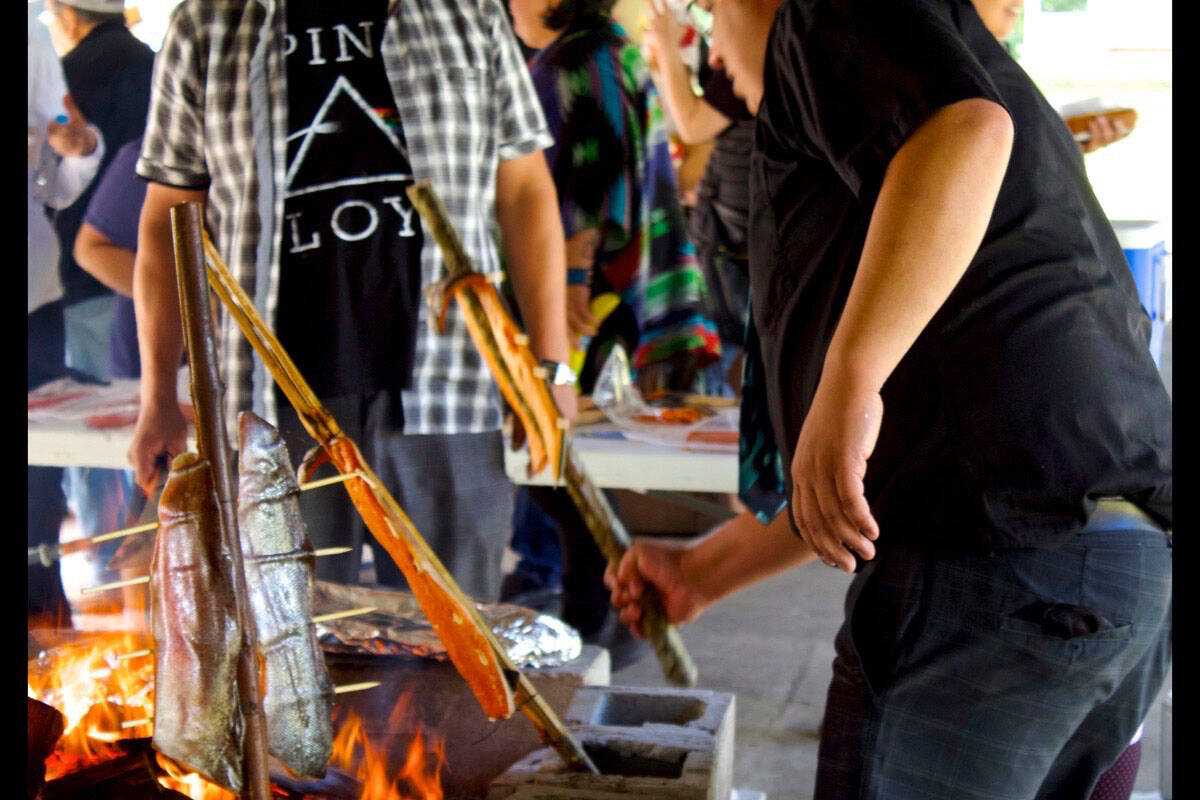Food is about more than what people eat.
For Indigenous Peoples on Vancouver Island, food affects physical, emotional and mental health, as well as Indigenous identity. However, decisions about food systems are often out of their hands. In an era of truth and reconciliation, fixes for these broken links can have a deep effect on peoples’ lives.
Island Health Indigenous Health Dietitian Jessie Newman says that food sovereignty is “about Nations reclaiming decision making power within the food system.”
RELATED: A true community garden takes root in Tsa’xana
“I make sure that I’m having conversations with people in leadership, with knowledge keepers, with Elders. Any time decisions are made we need to have Indigenous Peoples at the table,” she said. “Every Nation has different obstacles and challenges and finding those out is important.”
Newman is Haida, Heiltsuk, and Kwakwaka’wakw. She knows how traditional foods can link to ancestors, heal, and help rekindle the sense of identity that many Indigenous people struggle with.
“The greatest benefit is that they really connect us to our ancestors and loved ones who have passed,” she said. “It’s quite emotional, especially for me. Seafoods really give me that feeling of a connection to my father who has passed, and my uncles and my grandfather. All of those memories that I have around those foods are really special.”
However, thanks to the residential school system, many of those links are broken.
“If you go back to residential school and that disconnect from culture, a lot of people don’t have the knowledge of how to harvest our foods,” she said. “The lack of knowledge around cultural practices is one of the biggest issues within our communities.
“That really speaks to identity as well. A lot of Indigenous people really struggle with a loss of identity or a lack of identity due to that disconnect from culture brought about through residential school… When you’re eating these kinds of foods, it gives me the sense of ‘this is who I am and this is what I’m meant to be eating…’ Our foods are so powerful.”
“A lot of Indigenous people, they’ve been through so much trauma. Their mental health might not be the best,” she said. “If I can create situations where our People have greater access to their foods, then I am doing something positive that is going to have an impact.
Food sovereignty has increased throughout the region, but there is no one-size-fits-all solution. Every community has a different situation and different needs. The Kwakwaka’wakw communities are displaced from their traditional territories, making access to traditional foods difficult.
“The fact that none of these nations are actually located on their traditional territories where they would be harvesting these foods is probably the biggest barrier,” Newman said.
“Another big barrier is that a lot of Nations might not have the money to focus on this. The way that funds are dispersed into communities are like ‘you need to spend this money on this, you need to spend this money on that.’ Some Nations find or redistribute funding to hire knowledge keepers to do work around food sovereignty and food security,” she said. “Not every Nation does this or has the capacity to do it, but there are some Nations in the northern area like in Tsa’Xana where they’ve actually taken the initiative through funding from our Indigenous Health program and hired somebody. They really honoured the knowledge of the local food champions to do the work. If every community has somebody doing that, then we would be much better off.
When it comes down to it, Newman says her goal is for Indigenous Peoples to have access and control over their food systems.
“There are so many reasons it’s not happening. Some of it is climate change, some of it is environmental. What would really work is if our government gave us access to our land back and gave us control over our land, how it’s managed and how the resources are managed,” she said.”We’d have access to our traditional territories and be able to harvest our foods whenever we want, and manage it in a way that will be sustainable… that’s the ultimate goal.”
RELATED: Grants aim to replenish threatened Indigenous food systems in B.C.
marc.kitteringham@campbellrivermirror.comLike us on Facebook and follow us on Twitter

